Graham Reid | | 7 min read
Billy Joe Shaver: When the Fallen Angels Fly (1993)
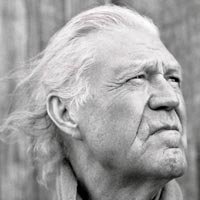
The truth about Billy Joe Shaver is
much more interesting than anything anyone might make up about the
guy. Shaver has lived on the hard edge of life.
Born in Corsicana in Texas in late 1941
or '39 depending on where you read it (“just a cotton-gin town, the
same one Lefty Frizzell came from") and raised in Waco, he lost
two fingers in a sawmill accident when he was 26 ("the Lord was
telling me somethin' “), was married three times -- to the
same woman Brenda (“she's an idiot, she kept accepting so that makes her
dumber than me") and considers himself a Christian (“but I'm
still a sinner," he laughs in a creaky voice).
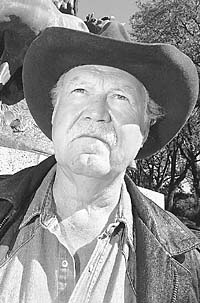 Shaver is also one of the finest
contemporary songwriters whose lyrics reflect the scuffs of life. His
country style with a tough blues input has drawn favourable
comparisons with Hank Williams and his songs have been recorded by
Waylon Jennings, Willie Nelson and most other country singers in
search of an authentic lyric.
Shaver is also one of the finest
contemporary songwriters whose lyrics reflect the scuffs of life. His
country style with a tough blues input has drawn favourable
comparisons with Hank Williams and his songs have been recorded by
Waylon Jennings, Willie Nelson and most other country singers in
search of an authentic lyric.
And in the early Nineties Shaver didn't
have a recording contract of his own.
"Yeah, Columbia dropped me,"
he told me at the time. “I didn’t bounce so good this time so I just
went off and wrote a few songs and came out fightin' again."
Being dropped by a record company is no
big deal. Shaver has seen worse times.
He was raised by his grandmother and by
his own account they barely survived. Even when times got good and
his grandmother got a radio they “still had to pinch pennies so I
didn't get to listen to it except at certain times."
He started singing at age five and
"down at the general store they'd extend credit on my
grandmothers bill if I'd sing. They'd stand me up on a crackerbarrel
and I'd sing just whatever I could remember from off peoples radios.
I’d make up the bits I couldn't remember."
When Shaver was 12 his grandmother died and he moved closer to his mother who “was a honky-tonk gal and ran a place called The Green Gables with another gal named Blanche. To tell you the truth I grew up in those places. They were kinda rough but I didn't notice that at the time.”
It was experiences in such places that
gave Shaver the impetus later to pen Honky Tonk Heroes, the song
Waylon Jennings chose as the title track of his '73 album which
featured all but one tune written by Shaver. (Another song off it
co-written with Jennings, You Ask Me To, was later recorded by Elvis
Presley.)
And Shaver says a memorable incident
one night as a child also gave his life direction.
“I heard Homer and Jethro and the
Light Crust Doughboys were playing at the Wonderbread factory so I
snuck out the house and walked the five miles down the railroad track
to see them. They let me in for free 'cause I was barefoot and looked
kinda pitiful, I guess.
“Because the county was dry all the
bootleggers came along and got everyone half-lit, then some guy came
on and said, 'Here's a new guy y'all don't know -- but you soon will'
and they brought on Hank Williams.
“Nobody paid much attention to his two songs but he looked me right in the eye and sang them to me. I got so moved by that I decided that’s what I wanted to be from then on, so I started writing -- but it was considered a bit sissy."
It also took a lot of strange turns in
his life before he was writing in a way which satisfied him. A few
years in the navy, some time as a cattle puncher and then the period
in the sawmill which lead to the accident.
“A chain pulled a couple of my
fingers off and I nearly lost my arm. I realised then I wasn‘t
doing what I was supposed to do. So I went to Nashville in '66 but it
was hard getting in because you had to be good and the older
songwriters had a lock on everything.
“I worked for Bobby Bare's publishing
company and got paid $50 a week. But the cheque would sometimes
bounce – Bobby was in as bad a shape I was."
The job meant turning in a couple of
songs a week and early on he met Waylon Jennings. It wasn’t exactly
overnight success but Shaver songs started getting attention.
In rapid succession his songs were
covered by Kris Kristofferson (who did Good Christian Soldier and
later produced Shaver's debut album Old Five and Dimers Like Me in
'73), Tom T. Hall, Jerry Reed, Tex Ritter, Johnny Rodriguez and John
Anderson ("He just about wore out l'm Just an Old Chunk of
Coal").
“I guess I knew I'd sort of ‘made
it' as a song writer when Bobby Bare did Ride Me Down Easy because
that song was so close to me I didn’t even recognise it could
become a hit. It was about me and I didn't think anyone else would be
interested."
But increasingly people did become
interested in Shaver-penned tunes. His songs are sometimes
controversial in country circles: Black Rose was about an interracial
relationship and contained the lines “the Devil made me do it the
first time, the second time I done it on my own”.
He fell victim of drink and drugs to
the point of failing to record an album for MGM, hated live
performances in the Seventies, had songs written about him by Kris Kristofferson (The Fighter) and Tom T. Hall (Joe, Don't Let The Music
Kill You) and wrote about Willie Nelson in Willie the Wandering Gypsy
and me. In the late Seventies he turned to religion.
With only six albums in his first 20
years, he was often passed over by mainstream country audiences at a
time when there were maybe too many “outlaw” artists, but Shaver
was the real deal and his earthy lyrics have made him a champion in
the eyes of working people.
"A lot of country singers have
been doing it since they were kids and that’s been very much all
they did. I worked right up until my accident and even after I messed
my fingers up I was still working. I fell off a house when I was
building and broke my back. I think the Lord had a message for me but
I‘m kinda dumb and took a long time to catch on.”
These days Shaver is very much a
full-time singer/songwriter although he has appeared in a few films
(among them The Apostle of the mid Nineties opposite Robert Duvall)
but albums remained infrequent until the 2000s, not just because he
was “between labels" but he admits he lives with his songs for
a long time before recording.
And he has a wry sense of humour which
has no trace of bitterness despite sometimes being on the losing end
of life.
Of a trip to London to perform at a big
festival in the early Nineties ("my first time over the water to
tell you the truth") he laughs in his slow, cracked voice at the
cost of taking a band over, only to find no cheque forthcoming from
the promoters: “Those dirty dawgs, the guy‘s name was Mervyn, we
call him swervin` Mervyn, the rascal."
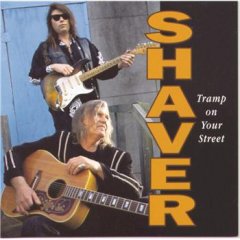 In '99 both his wife and mother died,
the following year his 38-year old guitarist son Eddy (left) with whom he
toured and recorded died of a heroin overdose, and the following year
he had a heart attack and nearly died on stage in Texas. In 2006 he
was inducted into the Texas Country Music Hall of Fame and he served
as spiritual advisor to Kinky Friedman in his run for state governor.
In '99 both his wife and mother died,
the following year his 38-year old guitarist son Eddy (left) with whom he
toured and recorded died of a heroin overdose, and the following year
he had a heart attack and nearly died on stage in Texas. In 2006 he
was inducted into the Texas Country Music Hall of Fame and he served
as spiritual advisor to Kinky Friedman in his run for state governor.
In the late 2000s there was an incident
involving a gun in bar (he shot a man in the face after a
disagreement) but was acquitted when his claim of self-defense was
accepted.
Shaver is one of those unique, genuine
country artists a long way removed from the sanitised artists who
appear on television screens from time to time. His songs have been
covered by rock musicians (the Allman Brothers did Sweet Mama),
Presley, Dotty West, Jerry Jeff Walker and, when the outlaw country
movement was at its height, Waylon, Willie and the rest.
But to hear the man sing his own songs
is a rare treat “because it all starts with a song."
“Songs come real easy, for me this is
still a hobby. I never did it for the money because I could always
make more breakin' in horses. But I love this and still do.
“I just record my stuff and if
someone else wants to do them l usually find out later. I don't push
my songs to anyone. I'd have a hard time doin' that. It would be like
sellin' a kid."

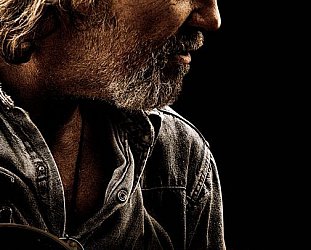
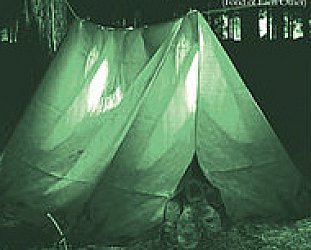
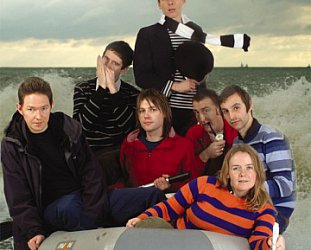

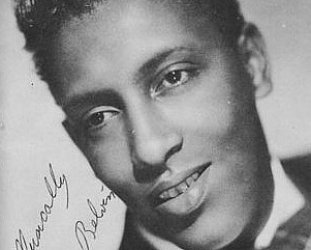
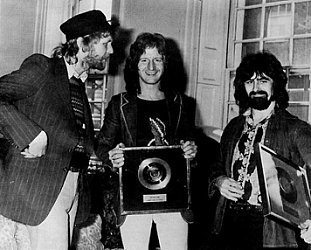
post a comment